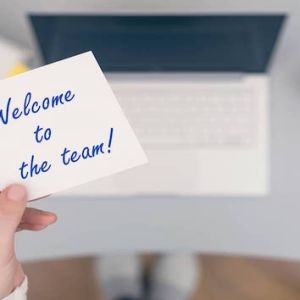We all make mistakes. The character of the person is how they react when they do, closely accompanied by learning from it so we don’t repeat it. After all, the definition of insanity is to do the same thing over and over again, in the hope of getting a better result. But a lot of people do repeat mistakes, probably because making a mistake means you must own it first.
Everybody makes errors. An error doesn’t become a mistake though until you refuse to correct it. In today’s society there seems to be a decline in personal responsibility. The common reaction then is to try to hide the mistake, or to blame other factors or people. Owning up to mistakes usually shows that you are professional and willing to learn from your errors, which builds trust.
One of my biggest mistakes was not doing something as opposed to something I should have done. And the mistake was painfully slow to play out. During the investment boom around about 2009, we had a property that was giving a very good return thanks to the mining boom. Someone contacted us about buying the property for three times what we paid for it. My reasoning was why would we sell it and pay tax on the capital gain when it was still making good returns? Buy and hold, as they say. Fast forward a few years, and of course the market had dropped substantially, both rents as well as values. Meanwhile, legislative changes against landlords had become so onerus that we sold the property for significantly less than the offer in 2009. My mistake in this instance is probably best described as greed (or more to the point a distaste for paying more tax when it is spent so poorly), as I knew we should have sold at the time. In an investment context, a common example of not owning a mistake is to hold on to shares that have fallen in value in the hope that one day they will recover, and therefore riding on to bigger losses.
Some mistakes are very minor or caused by simple errors. We recently had a customer double pay an invoice, and when we called them to advise of the error, there was silence on the other end. The quite large company paid all invoices monthly, and the silence was the penny dropping that by some kind of glitch they had paid their whole run of creditors twice. “Thank you for letting us know so promptly, sorry but I have to go”. The next call would have been interesting to hear. Undoing the mistake would require contacting all suppliers and then waiting for the money to be refunded.
Making mistakes doesn’t make you stupid (but I wouldn’t go so far as to say it makes you smarter either). Mistakes might not actually be bad if we can turn the situation around. In fact, many great outcomes have actually been the result of a mistake. A failure doesn’t make YOU a failure. Two good examples of this are:
Scientist Sir Alexander Fleming was looking for a cure for various diseases using mold. It wasn’t until he literally threw his experiments in the bin that he made his famous discovery. He noticed that all the bacteria in the bin was dissolving. When he re-collected the mold and grew it in a laboratory, he found that it contained a powerful anti-biotic, and that my friends was how penicillin came about.
Another “mistake” was made by Percy Spencer (an engineer at Raytheon Corporation). He was researching radar activity in a vacuum tube when he realised that the candy bar in his pocket began to melt during his experiments. Not quite sure how it was so, he put popcorn into the machine, and as he turned the machine on he realised he had created what is now known as the microwave oven.
People deal with mistakes differently too. My weakness is that I’ll be kicking myself internally, even stewing on it for a long time afterwards, without perhaps showing it enough externally. Reading up on the topic, experts give a few tips on how to own your mistakes. These include:
- Analyse the mistake. By understanding what has gone wrong you’ll have the best chance to create a solution.
- Honesty and accountability. Put the mistake into perspective. Nip it in the bud and act timely to stop a little mistake from escalating into a bigger one.
- And ask for help.
- Learn from the mistake and take an active part in fixing it.
The only worse thing than a mistake is a repeated one. At the end of the day, taking ownership of a mistake means accepting that the buck stops here.
Words from the wise
“I was wrong once. It was when I thought I was wrong, but I was actually right.” – used by the author, but probably an example of the opposite message of this article! Or maybe I’m learning…
“Never judge a person for their mistakes, judge a person on how they fix them” – (unknown source, claimed by many)
“It is impossible to live without failing at something, unless you live so cautiously that you might as well not have lived at all, in which case you have failed by default” – JK Rowling
As always, Onwards and Upwards!
Fred Carlsson
General Manager



